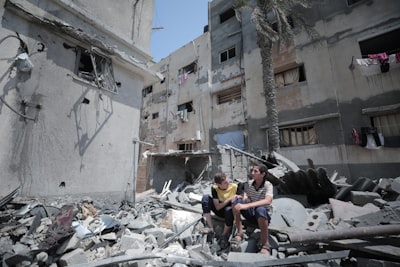With France announcing its willingness to ensure the security of humanitarian aid in Gaza, the international response to one of today's most acute crises takes a new turn. At stake is not just the delivery of food and medicines to a besieged population, but the credibility of global powers in balancing realpolitik with humanitarian values.
The Context: A Humanitarian Bottleneck
Gaza's humanitarian situation remains dire, with UN agencies warning of imminent famine and health collapse. Yet, relief convoys often face deadly risks—ranging from airstrikes to looting and chaotic ground conditions. Calls by aid organizations for international protection have, until now, met with inadequate action.
What Does France Offer?
France’s readiness to safeguard aid routes is both a logistical and political commitment. The move, while welcomed by some, provokes questions: Can an outside nation genuinely shield help in a warzone, and at what diplomatic cost? France, as an EU leader and UN Security Council member, has the capacity to deploy naval or air assets, diplomatic pressure, or both—the specifics remain murky.
| Perspective | Pros | Cons |
|---|---|---|
| Security for Aid Delivery | Potential to reduce violence; faster aid | Risk of escalation; accusations of partiality |
| France’s Reputation | Boosts global standing | Possibility of failure on the ground |
| Editorial/Humanitarian View | Shows leadership; moral authority | Might set unkept precedents |
Dilemmas and Broader Implications
France’s posture highlights a multi-layered dilemma: Is forceful protection compatible with neutral humanitarianism? Would such actions strain Franco-Israeli or Franco-Arab relations? In the global arena, there’s a growing trend of middle powers (like France, Turkey, and Qatar) stepping into roles once exclusively held by superpowers. This move could nudge others—especially within the EU or NATO—to follow suit or, conversely, to distance themselves.
Surprising Developments
Notably, France’s offer aligns with a wider pattern of European concern about the repercussions of Middle East instability spilling over into migration, security, or political tensions at home. The willingness to act directly—rather than defer to UN or US leadership—signals a possible recalibration of Europe’s strategic approach.
Bottom Line
Whether France’s promise is a bold step toward real change or a diplomatic gesture remains to be seen. What’s clear is that the plight of Gaza’s civilians has become a touchstone for international accountability and the evolving role of Western powers in humanitarian crises.
This article was inspired by the headline: 'Gaza : la France prête a assurer la sécurité de l'aide humanitaire - CNews'.

Comments
No comments yet. Be the first to comment!